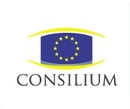Description
The Justice and Home Affairs (JHA) Council brings together Justice ministers and Interior ministers about once every two months to discuss the development and implementation of cooperation and common policies in this sector. The creation of an Area of Freedom, Security and Justice, is a key aim of the EU Treaty. Most of the matters in this field are decided by unanimity with a consultation of the European Parliament. Some matters however (visas issues and judicial cooperation in civil matters) are decided by qualified majority, in consultation or in co-decision with the European Parliament, depending on the matter.
Member States began to cooperate in the area of Justice and Home Affairs in the mid 1970s on an informal, intergovernmental basis outside the Community framework. In 1990, Germany, France and the Benelux countries signed the Schengen Agreement, which was an important step toward cooperation among the Member States in this area. In the following years, several Member States acceded to the Schengen Agreement.
The aim of the agreement was to introduce genuine freedom of movement of persons without being controlled at internal borders, while providing for flanking measures in the fields of external border controls, visa policy, police cooperation and judicial cooperation in criminal matters.
The Treaty on European Union, which entered into force in November 1993, took a further step by incorporating Justice and Home Affairs in its institutional framework, thereby adding a further dimension to the construction of Europe.
The entry into force of the Amsterdam Treaty in May 1999 incorporated the Schengen rules into the institutional framework of the European Union. One of the main objectives of the Treaty is to maintain and develop the Union as an area of freedom, security and justice, in which there would be free movement for persons combined with suitable measures pertaining to the control of external borders, asylum, immigration, as well as the prevention and combating of crime.
It should be noted that Denmark, the United Kingdom and Ireland do not participate fully in a number of JHA matters or participate under certain conditions. In particular, the United Kingdom and Ireland do not take part in the Schengen rules on free movement of persons, external border controls and visa policy. The representatives of these States therefore do not vote on these matters in the Council.
Categories
European Union Institution
